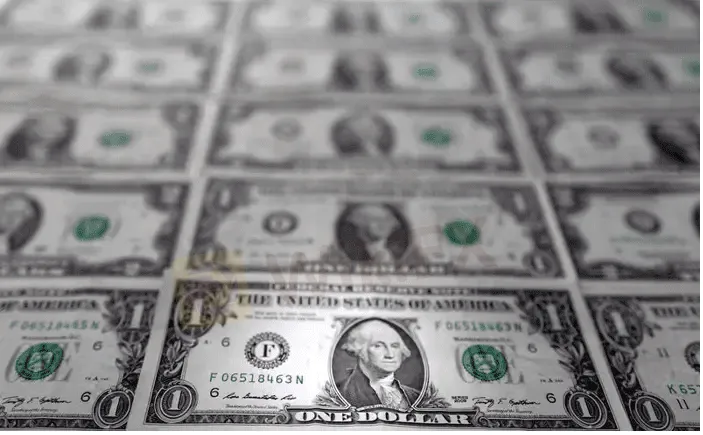Abstract:The dollar was little changed against major peers on Friday, but was on track for its best week in four as investors weighed the boost from tighter Federal Reserve policy and the risks of a U.S. recession.

Worries about the risk of a global recession drove rallies in the safe haven Japanese yen and U.S. dollar on Friday while the risk-sensitive Australian dollar dipped to a two-year low.
The yen gained to 135.105 per dollar, pulling away from the mid-week low of 137.00, which was its weakest in 24 years.
The dollar index – which measures the greenback against six counterparts including the yen, euro and sterling – gained 0.18% to 104.85.
The euro sank 0.31% to $1.0449 and sterling lost 0.53% to $1.21145.
The Aussie tumbled 1.12% to $0.6826, and touched $0.6822, a level not seen since June 2020.
The New Zealand dollar plunged 1.15% to $0.6175 for the first time since May 2020.
Risk assets were already under pressure in the Asian morning, but losses accelerated quickly in the afternoon.
Regional stocks sank along with U.S. Treasury yields in Tokyo trading.
Wall Street saw selling overnight, setting the tone, after weaker-than-expected U.S. consumer spending data stoked fears for an economic slowdown, driven by aggressive Federal Reserve policy tightening.
The dollar is performing a complex balancing act, rising amid risks of a global downturn but falling on signs of a U.S. recession.
The dollar index slid 0.32% overnight after the spending data, only to rally on Friday as that same data drove declines in Asian equities.
“USD sentiment has been deteriorating on the back of rising recession fears, but focusing on U.S. growth in isolation has never been a good way to trade USD,” RBC Capital Markets strategists wrote in a note to clients.
The odds are extremely low of the United States sliding into recession without dragging the rest of the world with it, the strategists said.
The dollar and other haven currencies like the yen and Swiss franc would benefit at the expense of commodity currencies and sterling for the duration of a global downturn, they added.
For the week, the dollar index is on track for a 0.75% gain, which would be its best week in four.
The Fed has lifted the policy rate by 150 basis points since March, with half of that coming last month in the central banks biggest hike since 1994. The market is betting on another of the same magnitude at the end of this month.
Meanwhile, the European Central Bank is expected to raise interest rates this month for the first time in a decade, although economists are divided on the size of any hike.
Markets will look to euro zone inflation data due later in the day for a better sense of how aggressive the ECB might be.
The euro is headed for a 0.94% weekly slide, after touching a two-week low at $1.0381 on Thursday, with investors judging Europes economic predicament to be more precarious than in the United States, compounded by an energy crisis stoked by the war in Ukraine.
Sterling has dropped 1.21% this week.
The Aussie has tumbled 1.66% since last Friday.
The Reserve Bank of Australia decides policy on Thursday of next week, and markets expect a half point hike to the key rate. But that has not helped Aussie much, which has instead tracked commodity prices lower as the global economic outlook deteriorates.
“We have been arguing for some time for weakness below $0.70, and that we would give this dip time to unfold, especially given widespread stagflationary/recessionary pressures,” Westpac strategists wrote in a note, picking $0.6750 as “the next obvious target” for the currency.










